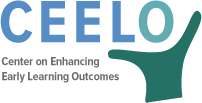This document summarizes what is known about principal licensing requirements and professional development in early childhood pedagogy and best practice, and provides selected state examples of professional development models for principals.
Comprehensive early childhood systems have the potential to integrate resources to promote the success of all young children. States vary in their ability to ensure all young children have access to high quality programs. Research indicates that good data, clear communication, and effective management systems are critical to the sustainability of effective early childhood systems. Technical expertise can build the capacity of SEA staff to work side-by-side with state partners to strengthen the early childhood system and achieve school readiness and school success goals for children.
From a Crawl to a Run: Enhancing and Sustaining Children’s Learning Birth Through Third Grade
This presentation describes a birth through third grade framework and its benefits and offers examples of what it looks like in practice. It also discusses what promotes and hinders a birth through third grade framework and highlights the roles state agencies, programs, administrators, policymakers, providers, and parents can play. Jim Squires gave this presentation at the Mississippi Early Childhood Conference.
Financing Early Care and Education
This annotated bibliography lists resources on financing policy, calculating costs, and financing strategies for early care and education.
Where Vermont Stands: Understanding the NIEER State of Preschool Yearbook
This talk presents Yearbook information from the national level and then looks at Vermont specifically. guides on how to use the data. Jim Squires presented the slides to the Vermont Building Bright Futures State Advisory Council.
Excellence for Every Child: Improving the Quality of Teaching Birth through Grade Three
This roundtable offers helpful resources on improving instructional practices from the 2014 CEELO Roundtable (see “presentations” and “resources” tabs). Roundtable Reflections 2014 provides broad highlights from the sessions and lists resources identified by participants.
Early Learning Chiropractory: Can we Make Standards Alignment a Little Less Painful?
This presentation examines how states are approaching a comprehensive early learning system of standards and explores emerging tools to move state standards along a cohesive and high-quality continuum. CEELO’s Jana Martella and Tom Schultz, along with Albert Wat (National Governors Association) and Jim Lesko (ELC-TA) at the 2014 NAEYC Professional Development Institute.
Every Day, Every Year of a Hoosier Child’s Life is Important!
Every Day, Every Year of a Hoosier Child’s Life is Important! provides evidence on why a birth through third grade approach is important and describes how all children in Indiana can succeed. Lori Connors-Tadros gave this presentation at the Indiana Early Learning Summit.
Child Care, Head Start and Pre-K Partnerships: Research Findings (Webinar Recording)
This webinar shares research findings on child care, Head Start & pre-K partnerships. The webinar shares highlights from research conducted over the past 10 years that examine the nature of partnerships, the types of partnerships that yield desired benefits, and the outcomes of partnerships. Diane Schilder presented the webinar, which was sponsored by Ounce of Prevention Fund.
Access to High Quality Early Care and Education: Readiness and Opportunity Gaps in America
This policy report describes readiness and opportunity gaps in access to high quality early education. The report is organized into four main sections. The first describes the “readiness gaps” at kindergarten entry as of 2010. The remaining sections examine the extent to which there are “opportunity gaps” in the early care and education services that may be associated with those readiness gaps.
Understanding Pre-K Inclusion Data: Making the Most of the NIEER State of Preschool Yearbook
This presentation demonstrates why a high quality preschool matters in an inclusive birth through third grade context. It explains what the 2013 NIEER State of Yearbook data tells readers and how the data can be used. It concludes with a list of additional resources. Jim Squires presented these slides at the National Inclusion Institute.
State of the States Policy Snapshot: State Early Childhood Assessment Policies
This policy brief addresses the questions: What child assessments are required of pre-K and Kindergarten providers? How are child assessment data used? The brief is based primarily on secondary analysis of data collected in the NIEER State of Preschool Yearbook and presents a snapshot of responses to questions about child assessment.
State of the States Policy Snapshot: State Pre-K Monitoring and Evaluation Policies
This report discusses why evaluation and monitoring systems are important for quality early education and the data states collect to monitor and evaluate pre-k programs.
